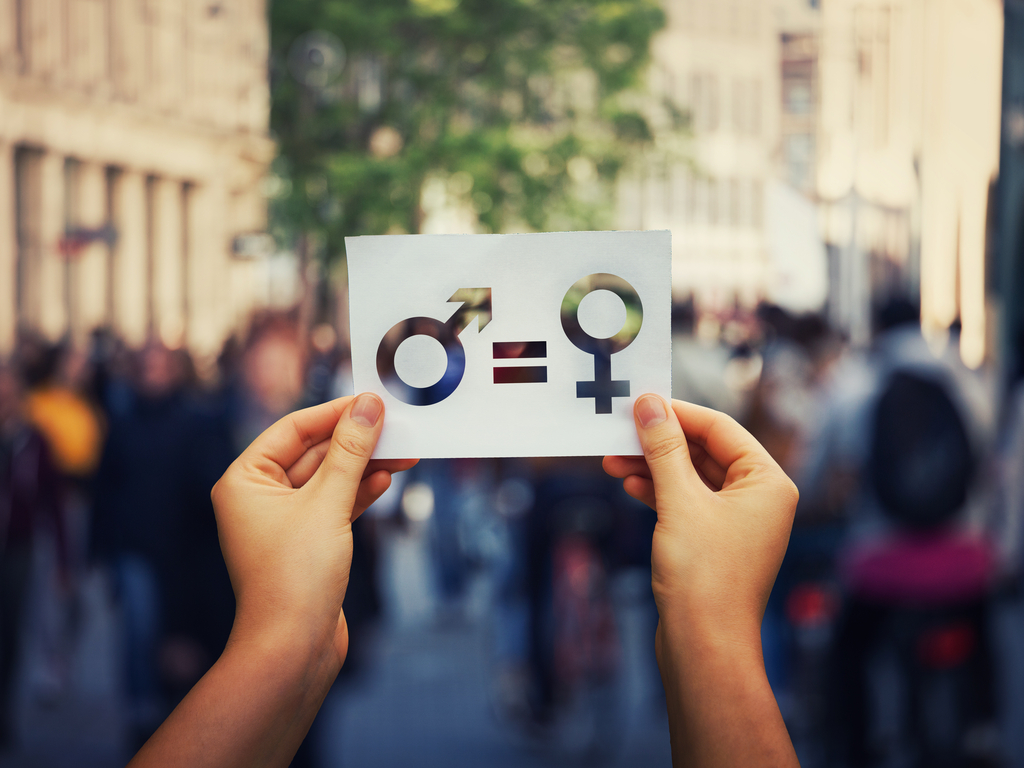Maryna Shevtsova, PhD in Political Science, Swedish Institute Research Fellow at Gender Studies Department, Lund University, Sweden
In July 2020 UN Women and UNFPA, together with the European Union have launched a three-year regional program to tackle gender stereotypes and gender-based violence in six countries of the Eastern Partnership: Armenia, Azerbaijan, Belarus, Georgia, Moldova, and Ukraine.
The program, entitled “EU 4 Gender Equality: Together Against Gender Stereotypes and Gender-Based Violence,” ultimately seeks to strengthen equal rights and opportunities for women and men by challenging perceptions about men’s and women’s roles in the family and in society and working to eliminate gender-based violence.
We have interviewed leading experts from Eastern Partnership countries to hear about gender equality issues in their home countries. Here are the answers from the expert on Ukraine.
How can you describe the gender-based issues in your country, is there any gender inequality (i.e. gender pay gap, gender-stereotyped behavior including men’s non-involvement in parenting and domestic responsibilities, gender-based violence etc.)?
On the one hand, Ukraine has quite good legal foundation to ensure gender equality. Gender equality is guaranteed by the Constitution, by the law on prevention and combatting discrimination, there is even a separate law aimed at ensuring equal rights and opportunities for women. However, based on the recent surveys’ results, when it comes to the implementation of these legal acts, there is a large room for improvement. For example, according to the UNDP data, average gender payment gap across the country is around 21% (reaching 50 and even 70% in regions like Dnipro or Donetsk respectively). 29 hours per week compared to 15 hours in the case of men women spend on unpaid housework. And while the current parliament is proud of the highest number of women among its members for the whole history of independent Ukraine, women still represent only 20 % of the MPs (88 female MPs out of 423). Furthermore, gender-based violence still remains a huge problem for the country where 2 out of 3 women have suffered from psychological, physical, or sexual violence, and every second women had faced sexual harassment at least in one form. At the same time, because of strong opposing votes of conservative and religious groups, Ukrainian parliament still has not ratified the Istanbul Convention to prevent and combat violence against women and domestic violence, which, I believe, is a very good illustration of what is going on in the country.
Do you expect the program to ensure gender equality in your country, what results can be achieved within three years of its implementation?
The program description sounds very promising and ambitious as the plan is to collaborate both with the government and civil society organizations. Ukraine by now has quite a few NGOs working with gender equality and women’s rights active in different regions and I am positive that their experience and knowledge will make a valuable contribution to the program. The fact that the focus is on social discourse, perceptions, and practices in the participating countries creates potential for bringing real transformations at different levels of the society. My main fear, though, is related with the implementation of the program. It is not a rare case that our politicians express enthusiasm and eagerness to participate in EU-led programs yet the impact and outcomes of those are very insignificant and limited to declarations and memoranda of intentions. There is a clear need in more watchdogging practices and monitoring mechanisms that would allow the program officers to see real-time progress. For that, obviously, very clear indicators for each year of the program should be set and sanctions developed that could be put into action if the indicators are not achieved on time. Among such indicators could be female participation/representation on certain positions, number of gender-violence cases investigated by the police, awareness raising campaign results, mentorship programs for women in leadership, etc., etc.




